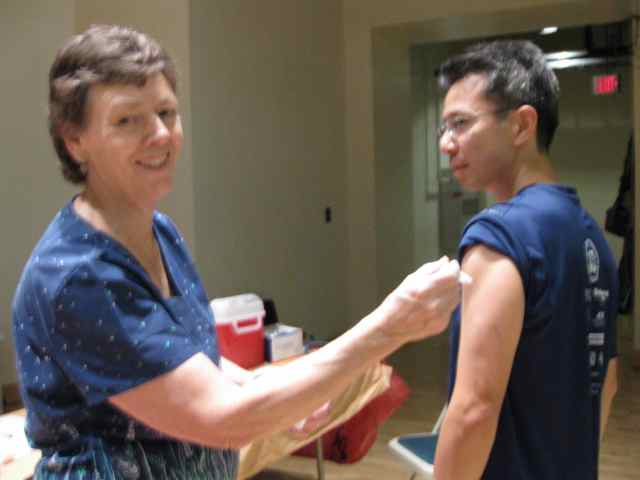I don't know whether to get a flu shot
Every fall I am bombarded by reminders to get a flu shot. The reminders come from where I work, as well as from my health insurance provider. I never know whether I should really get one.
Today, I got my flu shot after all. Why? And why my resistance?

Why not get flu vaccine?
There are various reasons “why not”.
My own history
One is that in the short term, I find them painful and have had bad experiences in which my whole day was ruined because of the effects. Sometimes my arm hurts for two or three days straight. Sometimes I have trouble lifting my arm. Sometimes I feel really tired for some reason.
More annoyingly, some years I seem to have gotten downright sick after getting the shot.
Finally, there have been times when I got a flu vaccine in the fall but came down with some flu in February or March anyway. How effective is the vaccine anyway? Do we really know?
Other people’s history
I’m not the only one who has gotten sick or otherwise felt bad for a day or two after a flu vaccine. I personally know quite a few people have reported such side effects. In fact, my own mother got really ill once after a flu shot.
”Alternative” warnings
Just as with childhood vaccines and water fluoridation and any number of other public health measures, flu vaccines are a popular topic among some “alternative” circles that warn against how horrible these mandatory or recommended measures are. I never summarily dismiss alternative points of view in favor of automatic acceptance of mainstream wisdom, but it can be time-consuming and confusing to try to look into different points of view while not really being an expert in the area and therefore not necessarily being able to detect inaccuracies and falsehoods.
Why get flu vaccine?
The short answer to “why follow the official recommendations” is that experts have presumably studied the pros and cons, the possible beneficial effects and negative effects, and a cost-benefit analysis for the public as a whole makes the treatment worthwhile.
Opponents of vaccines and other public health measures often look just at the possible negatives without weighing the positives (assuming they do not straight away engage in conspiracy theories about the motives of government agencies). In particular, they often worry exclusively about their own health or that of their children rather than that of society as a whole. So opposition often takes a philosophical or political tone that is completely independent of the concrete issue at hand. Unfortunately, when it comes to matters such as vaccination, effectiveness depends on everyone making the same choice. If vaccination is effective, then by not getting vaccinated, I risk getting sick and spreading the illness to others. My decision does not affect just me, but other people also.
Today’s experience
CMU had been offering free flu shots for several weeks now, and each time I chose not to get one. But today was the CMU health and benefits fair, so I was going to that event anyway, and flu shots were being given there, and therefore there was a higher chance I would go for it.
It turned out that today was a nice, sunny day, and I was feeling pretty good, so I got the shot after all. If it had been a crappy day, I would not have. That’s what it came down to.
I tried an experiment, hoping to avoid feeling as bad as I have in the past. I exercised before and after shot, with the idea that better circulation would enable me to better deal with the shot. Nevertheless, by afternoon, I was strangely feeling pretty bad. Very sleepy, and feverish. That lasted an hour, then I was OK again. My arm is sore, but not horribly so. Hopefully I’ll be back to normal in a day.
We’ll see whether I get flu this winter. Either way, I can’t draw any conclusion from the result!
